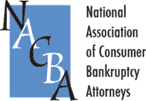Are you unable to pay your mortgage, rent, credit card, or other bills? If so, you may be considering your options. One of the most common questions we receive is: How to File Bankruptcy Chapter 7 if I do not have any money? Many people assume that if they are unable to pay their bills, they will not be able to file for bankruptcy. There are several different ways for you to confront that problem.
Fees Involved in Filing for a Chapter 7 Bankruptcy
There are three different types of fees, other than attorney fees, involved in filing for bankruptcy.
If you are filing for a Chapter 7 bankruptcy, you will need to pay:
- a $245 filing fee
- $78 administrative fee
- $15 trustee surcharge—
The total amounts to $338 in fees. If you need to reopen your chapter 7 case, you will need to pay a total of $260 in fees.
You will also need to complete two mandatory educational courses and pay for them. You may qualify for a fee waiver if your income is within 150% of the federal poverty guidelines. Otherwise, you could pay the fee for installment payments, but you will need to submit an official request with the bankruptcy court to do so.
Should You File For Bankruptcy on Your Own to Save Money?
Once you submit your application, the court will issue an automatic stay order to stop creditors from collecting your debts. It is possible to file for Chapter 7 bankruptcy without hiring an attorney, but filing for bankruptcy without a lawyer is not easy. If you do not complete your application correctly, you could risk losing unprotected assets that are non-exempt.
Filing for bankruptcy on your own could result in a poor outcome, such as the court not discharging any of your debts. If you are working and trying to earn money to pay off your debt, filing for bankruptcy on your own is typically not a wise option. Most people are not trained to engage in legal research, and you will probably save money overall by hiring an attorney to handle your case.
Contact a Chapter 7 Bankruptcy Lawyer Today
Some bankruptcy lawyers are willing to work on a retainer. In other words, you will pay a specific amount upfront to your lawyer, and they will deduct their fees accordingly. In other cases, you may be able to secure a loan to pay your attorney. Many law firms that handle bankruptcy cases have payment plans or other options available for people who cannot pay attorneys fees upfront.
It is worth taking the time to discuss your case with our bankruptcy lawyers in San Diego so you can learn about your other options. At Bankruptcy Law Center, we have successfully helped many clients struggling to pay their bills successfully apply for bankruptcy. Contact us today to schedule your initial consultation to learn more about your payment options.








